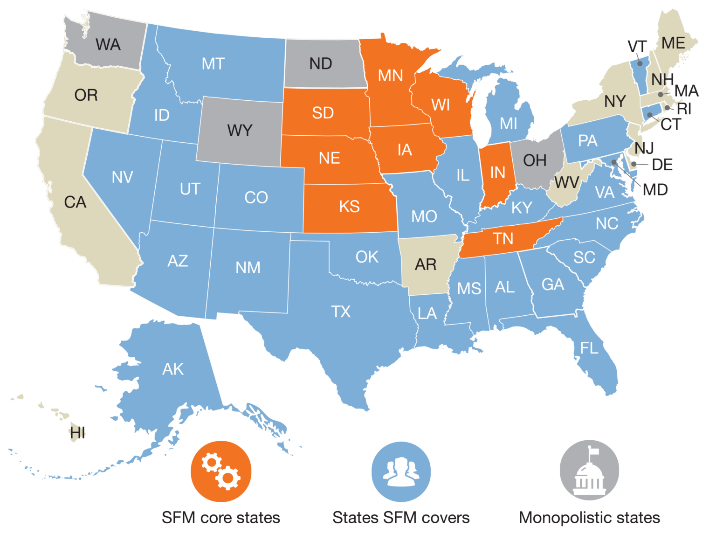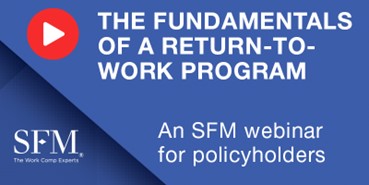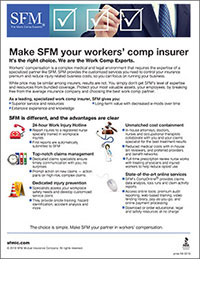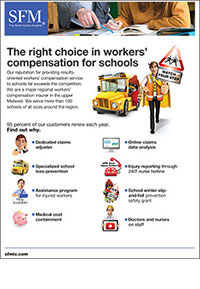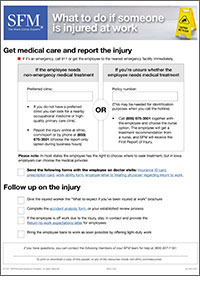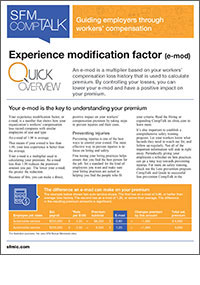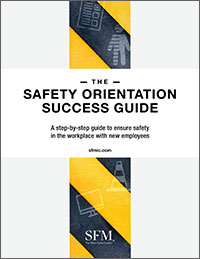By Nick Johnson, CSP, Loss Prevention Specialist
Imagine this scenario:
We are at the airport waiting for our departure flight. While waiting, we see our incoming plane land, taxi from the runway, and dock at the jet bridge with no issue. We watch as all the previous passengers disembark, and the plane is refueled. Soon, the gate attendant calls passengers to board. The process is running like a well-oiled machine with no delays, and it looks like it will be a smooth departure.
Once settled into our seats, we wait to depart, but minutes after the scheduled departure time, the pilot explains over the intercom that they found some “irregularities” during their pre-flight checklist. Since we just watched this plane land and taxi with no problem, it seems like it will be just a minor delay. After 10 more minutes pass, the pilot comes on the intercom again to express concern about the “irregularities,” and the maintenance team has been summoned.
Finally, the pilot comes back on and explains that the maintenance team reviewed the data and decided to fully assess the plane before clearing it for flight. Passengers are asked to disembark and go to another gate to board a different plane. There are audible groans throughout the plane, but who wants to be on a plane with a potential mechanical issue?
So how does this story relate to pre-task planning?
If the flight crew hadn’t performed a pre-flight check, we would have embarked on a flight with an increased risk for a tragic incident.
Experience doesn’t guarantee safety
Part of my role as a workplace safety professional is to speak with clients about pre-task planning. Employers often respond that their employees are well trained, or they perform this work “all the time.” I love to hear that! The problem is that even well-trained and competent employees can have incidents and be injured when placed in less-than-safe situations and environments.
Safety risks can change daily and it’s imperative that employees have opportunities to identify them so they can use their training to solve problems before they result in incidents.
Pre-task planning identifies potential hazards for a particular time frame, environment and/or work task. Taking time to ask questions before beginning work allows teams to focus on hazard recognition and put specific controls in place to prevent incidents from occurring.
A little preparation goes a long way
By prioritizing pre-task planning, employees can focus on hazard recognition so when working on a task, they can perform knowing they’ve put appropriate safety controls in place.
I encourage implementing pre-task planning at the start of the day and after lunch. It can be an excellent tool to prevent severe incidents and help reduce pesky (and potentially dangerous) one-off incidents.
Give it a try!
What questions should employers be asking to identify hazards? There is a wide range of topics to address relating to mental, physical, and environmental states, such as:
- What is the task I am performing, and what’s the end goal?
- What could go wrong with this task?
- Is there a potential to fall, be struck by or caught between objects/equipment or to encounter energy sources (electrical, hydraulic, etc.)?
- What other work is being performed in the area that might affect me?
- How will I control my work area to ensure safety?
- Do I have the proper equipment to perform this task safely?
- What physical limitations do I feel would prevent me from performing this task safely today?
- What is the appropriate personal protective equipment (PPE) for this task?
- How will I mitigate the physical demands to prevent strains and sprains?
- How knowledgeable am I about the task being performed?
- What questions do I have about how to perform this task safely?
- How focused am I on the task at hand?
While this is not a comprehensive list of questions, it should serve as a good starting point to customize your own approach. The idea is to give employees every opportunity to assess a situation in real time and use training received to problem-solve and prevent incidents.


